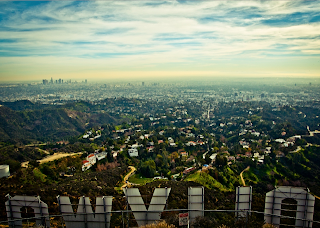By Marci Liroff
In Part 3 of this series I talk about the good, the bad and the ugly of being a casting director along with finding balance in your life. Good advice for all walks of life!
“What does a Casting Director actually do?” Well, I’m here to tell you all about it! Joy Wingard wrote to me from college saying she’s interested in being a casting director and wanted to know what really goes on in the world of casting. Since I was crazy busy, I asked her to jot down a few questions and I’d answer them over the ensuing weeks. She asked quite a few insightful questions that I wanted to share with you all.
Q: What do you enjoy the most & the least about being a CD?
A: The most? Getting a script and lovingly working with the filmmakers to put together a fantastic cast. Finding someone new, or thinking of someone for a part that is totally outside the box and getting my team on board and hiring them.
Making the call to the agent/mgr and actor to say “you’ve got the part!” brings me such joy!
Another part I truly love is working with the actors. I love to help them create a great character and guiding them through the audition process.
Enjoy the least? The politics. There are way too many politics involved in my job. Enough said.
Also, it’s not my favorite thing to negotiate with a lawyer. In the old days (when I first started) I’d negotiate with the agent. Nowadays, the agent hands it off to the client’s lawyer and I’m spending days on end going back and forth with the lawyer. Seems to me that’s Business Affairs’ job.
Q: I understand having passion for a job and loving it enough to embrace it wholeheartedly and spend most of your time doing it, but do you find that you’re able to have enough time away from the job to embrace a life outside of work?
A: Finding a balance between work and your “life” is key to any career. For me, even when I’m not officially working, I keep my eyes peeled – I’m always ‘looking’ in a sense. When I’m reading a magazine, the newspaper or online, I’m constantly clipping out (or bookmarking) articles about actors on the rise and adding them to my database.
But, you do have to know how to totally “unplug” and live your life or you will be just a shell of a person! This holds true for an actor. Whenever I meet an actor who feels burnt out or wants to walk away, I tell them to make sure to do something you love. You need inspiration from somewhere right? Go to the beach, a concert, kick up your heels and go dancing, paint, be with your kids, dogs, loved ones, cook, eat great food, meditate. How can you be an actor (or a great person) if you’re not living a full life?
Do you have any questions for me? Feel free to ask them here!
Want more tips and general thoughts on life? Be sure to bookmark my blog and follow me here!






Recent Comments